I just started with javascript and I can't really comprehend how callback functions work. It may sound dumb but I have some questions. I'll delete if it's not ok.
If a callback function is a function passed as an argument to another function, what happens to the arguments of the callback function?
Will using a callback function execute it twice(once when it's used as an argument and one when it's declared)?
Also, I can't wrap my head around how in the photo attached below the callback function arguments take the values of the elements in the array.
